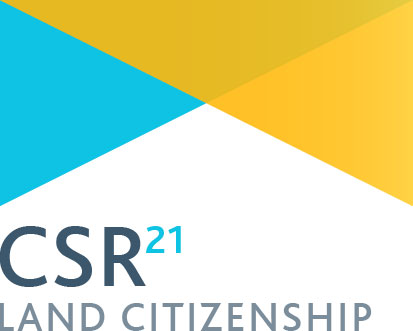
Dubai round-up: the mad and the ugly
That’s “mad” as in “cross,” of course.
Two bits from or relating to Dubai today, both also featuring Global Witness - very active this week - too. Blood diamonds (or not?) and conflict gold dodginess.
First up, as reported via Mining.com, Dubai Diamond Exchange Chairman and former director-general of the Antwerp World Diamond Centre Peter Meeus comments on the fight against blood diamonds. If by “comments” you mean “gets very cross.”
“I nearly fell off my chair,” he begins, “when I recently read the motion for a resolution of the six federal government parties, with the bold theory that the fight against blood diamonds has failed. Now that the resolution has been approved, I am even more amazed.”
His defence is not unreasonable:
“In 2014, diamonds are the most strictly checked raw materials in the world. With the exception of uranium, no other raw materials are so strictly controlled and observed as rough diamonds. More than 99.8 percent of all diamonds produced is certified by the Kimberley-process. Problem countries such as the Central African Republic, Ivory Coast, Guinea and Venezuela do not even represent 0.2 percent of the world production.
Already in April 2013 when the problems started in the Central African Republic, the Kimberley-process – of which I am part on behalf of the United Arab Emirates – has taken measures to ensure that the country could not export illegal diamonds any more. That way, the Kimberley-process was the first and only system to ensure, in a very short time, that rebels do not get the opportunity to finance their war with the sale of rough diamonds.”
It’s impossible not to feel some sympathy for Mr Meeus’ outlook as expressed above, though he did lose your correspondent a bit with the follow-up:
“Why are the NGOs so dissatisfied with the achievements of the Kimberley-process and the diamond sector?
Certainly not because there would be more conflict diamonds than twelve years ago. So why are they? Maybe because the NGOs themselves have become small enterprises and the available funds have decreased, so the mutual competition has therefore increased? Did their need to boast originate there? Is it not possible that diamonds have become part of NGOs' core business so that blood diamonds need to continue to exist?
Could we possibly consider the economic context for a moment? It is an open secret that the NGOs working in the field of minerals are especially subsidized by western powers. Has anyone ever made the connection with the declining economic importance of the major superpowers in Africa ? The fact that China has become the first economic power in the world with business transactions worth 3.82 billion dollars. That a kind of cold war is going on in Africa for the control of essential raw materials.”
There are some points to tease out there if you’re prepared to - and some fascinating opinion on the current flaws in the Kimberley process, too. Have a look. It’s an impassioned read and it’s interesting. We like a bit of vim and vigour here at CSR21.
In other Dubai news, a worrying Global Witness Press release crossed our desks earlier this week (substantiated by the BBC2 Newsnight programme on the 25th), and this is what it said:
Revealed: Why Dubai’s first conflict gold audit never saw the light of day
Watch Newsnight, BBC2, 10:30pm tonight for more coverage of this story.
According to a former partner at Ernst & Young, the global accountancy firm turned a blind eye when a report of major audit failures at Dubai’s biggest gold refinery went unpublished. A Global Witness report released today, City of Gold, considers the implications.
Documents seen by Global Witness suggest that the local metals regulator, the Dubai Multi Commodities Centre (DMCC), changed its audit guidelines after becoming aware of negative findings in Ernst & Young’s report, with the effect that damaging results were not released.
Dubai is a key market – trading more than 20% of the world’s gold, worth $70 billion in 2012 – and Global Witness research indicates that it’s the main destination for Congolese conflict gold.
Ernst & Young was auditing Kaloti Jewellery International against international standards designed to prevent gold from funding conflict and human rights violations in places like Congo and Sudan. Amjad Rihan, the partner in charge of the project, who has now left the firm, alleges that Ernst & Young knew about the DMCC’s actions but failed to disengage from the audit.
The Ernst & Young audit found that in 2012 Kaloti Jewellery International:
failed to report potentially suspicious cash transactions worth over US$5.2bn;
knowingly accepted tonnes of gold bars painted silver imported from Morocco by suppliers who had used falsified paperwork;
failed to do adequate checks on gold bought from high-risk suppliers
These failures pointed to an increased risk both of money laundering, and of dirty gold from the Democratic Republic of Congo and other conflict zones entering the refiner’s supply chain during 2012.
Annie Dunnebacke, Deputy Campaigns Director at Global Witness said: “The unregulated trade in gold is fuelling wars and brutal human rights in places like eastern Congo. The actions of Ernst & Young and the Dubai regulator, while perfectly legal, undermine trust in the industry at a critical time when progressive new laws to tackle conflict minerals have come into force. This is why it was important that this story came to light.”
Global Witness believes Ernst & Young should have rejected the changes the DMCC made to their guidelines, and walked away from the audit engagement with their client. In our opinion, they also should have reported the most serious audit findings to the London Bullion Market Association.
“It’s our view that the Dubai regulator could not have secured a clean audit result from a major gold player without Ernst & Young’s willingness to turn a blind eye. Auditors like Ernst & Young play a public interest role in assuring us that companies are meeting important standards. If auditors can’t be relied upon to place ethical principles above business interests, progress in cleaning up the global minerals trade could be jeopardised,” said Dunnebacke.
Global Witness is calling on Kaloti Jewellery International to immediately release its unpublished audit report. The Government of Dubai should investigate any breaches of acceptable conduct in the DMCC’s actions and address the conflict of interest in the DMCC’s role as regulator and trade promoter.
Dunnebacke: “Public disclosure is a key incentive to improving business practice. This case points to the need for stricter guidelines for conflict minerals audits to ensure that all findings – especially critical ones – see the light of day. There may also be a need to consider new rules for auditors to reduce the inherent conflict between safeguarding the public interest, and promoting client or commercial concerns.”
Global Witness sought comment from the parties involved in this case. Kaloti Jewellery International denied any allegation of non-compliance and emphasised that it had never been found by Ernst & Young to be sourcing from conflict zones. The DMCC rejected any suggestion of a cover-up or improper action. The regulator said that its processes are consistent with international best practice and that the guidelines were revised in order to conform to international standards. Ernst & Young denied turning a blind eye to the suppression of audit results or acting in a manner not compliant with the firm’s Code of Conduct. The firm said that findings of non-compliance were fully reported to the client and to the DMCC, whose regulatory standards it independently applied at all times.”
ENDS
https://www.globalwitness.org/
https://www.globalwitness.org/sites/default/files/library/dubai_gold_layo...
https://www.mining.com/web/dubai-diamond-exchange-chairman-comments-on-fi...





